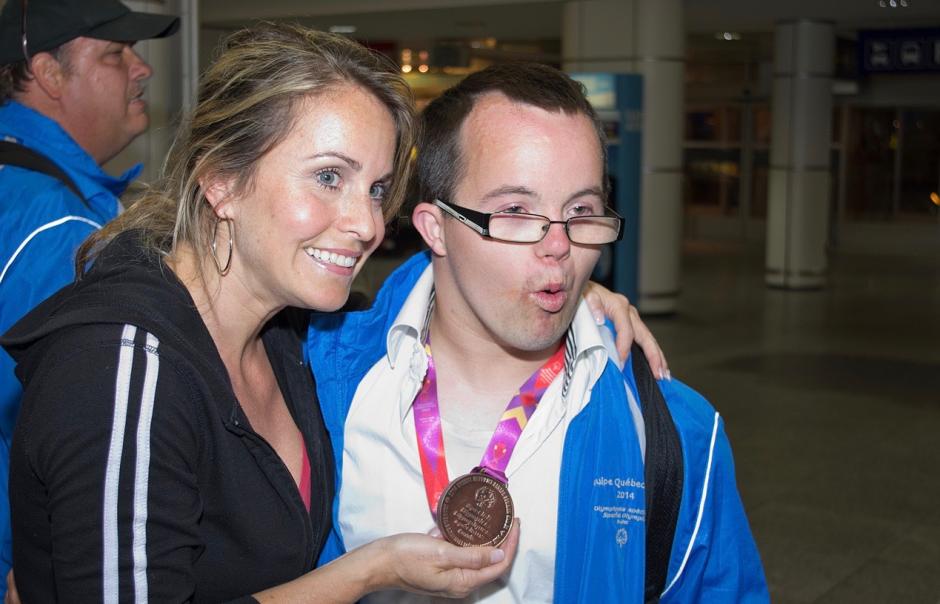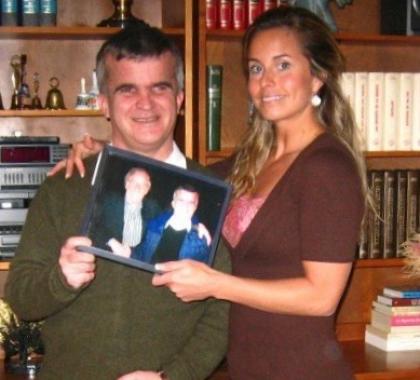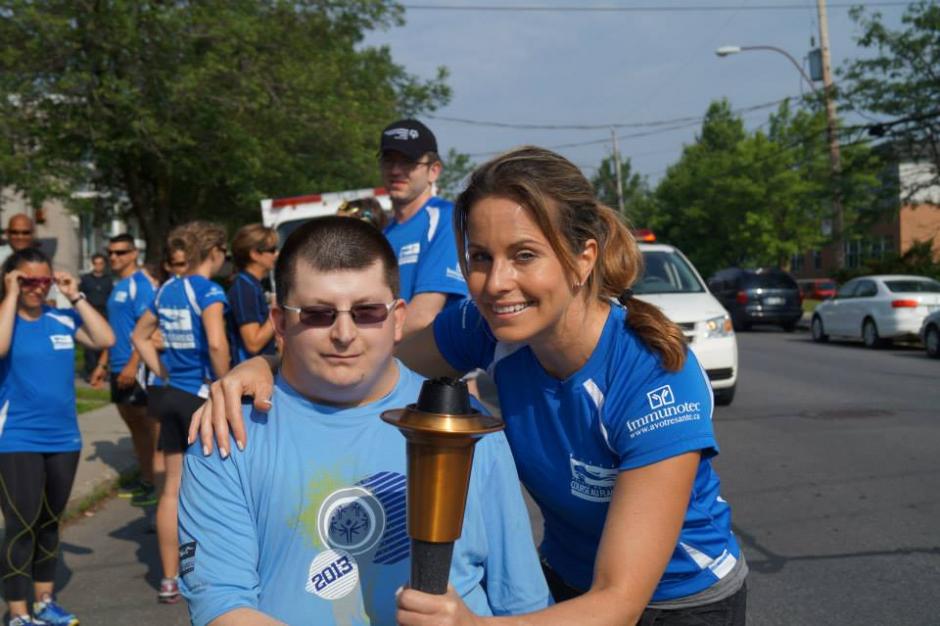When Montreal-based Olympic diver Annie Pelletier doubted herself in the lead up to the 1996 Summer Olympics in Atlanta, Georgia, she looked to her older brother Michel for inspiration.
Michel survived meningitis as a child and has an intellectual disability. He faced many challenges growing up – until sports “saved his life.”
He became a skilled bowler – Annie herself witnessed him get eight strikes in a row – and joined a local team, where he found acceptance, confidence and an identity outside of his disability.
“When I was training to go to the Olympic Games, of course I had rough times where I wanted to quit, where I was discouraged, where I had doubts about myself,” she said. “When I had these doubts, I turned to him – he was so passionate about his bowling and everything he was doing. He didn’t do this for any Olympic medal, but just to be a better person.”
“He helped me just live in the moment, take it one day at a time and just believe in myself.”
She continued with her training and went on to win the bronze medal in 1996 at just 22-years-old.
She retired after her win and struggled to find what was next – until Special Olympics Quebec asked her to host a fundraising event.
“I just fell in love with the cause,” said Pelletier. “I decided that I wanted to be more involved.”
“If sport helped my brother so much in his life, I thought I could do something to promote this movement.”
She started attending regional and provincial games, speaking at opening ceremonies, seeing athletes off at the airport, giving pep talks and cheering them on at practices. She became “the godmother of Special Olympics Quebec.”
“She really deserves that title,” said Special Olympics Quebec Executive Director, Francine Gendron. “She’s always there and is a wonderful example for our athletes – they’ve learned a lot from her over the years.”
Pelletier has gained just as much – or even more – from the athletes.
“They really saved my soul,” she said, as she reflected on her difficult transition from the competitive sport world. “They made me feel like I was useful, like I belonged.”
She’s also learned a lot about individuals with an intellectual disability.
“It helped me to understand my brother and his life even more,” she said.
Michel, now 56, lives in a group home and continues to bowl every Friday night. Pelletier picks him up from the bowling alley each week and gets along well with his roommates.
Unfortunately, Pelletier’s parents weren’t aware of Special Olympics, so Michel never bowled with the Quebec movement – but she believes he would have benefit greatly from the programs.
“He could have worked on his self esteem much earlier – he could have felt like he belonged much earlier,” she said.
Pelletier has seen the impacts of Special Olympics firsthand, as she’s watched many athletes develop over the past 20 years.
“It’s crazy how the sport – and not only the sport, but everything that goes with it, the travelling, the team spirit, the responsibilities that they have – all this made them into such great human beings and more independent,” she said. “It gives them the tools to gain confidence, to smile, to be proud of themselves.”
Now a mother to three-year-old son Arthur, Pelletier plans to bring him along to local games and events, so he too can grow up as a champion of inclusion.
Support Special Olympics athletes across the country by making a donation today.



